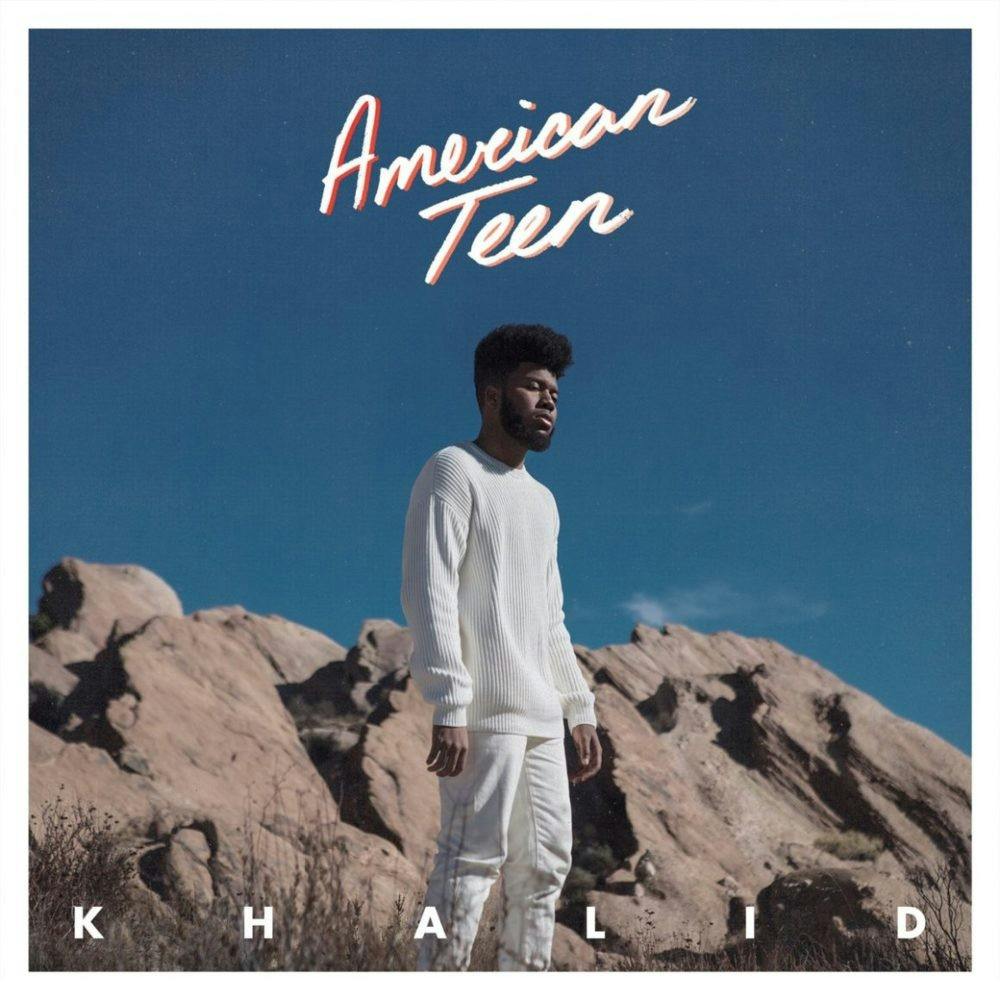“American Teen,” released March 3, does not boast the budding maturity of a Chance the Rapper album or the refined, soulful melancholy of a Frank Ocean work. Nineteen-year-old Khalid is surely no Kendrick Lamar whose sermons of love and loss in Compton, Calif. preach hope and healing to young black listeners. Despite all this and lacking in age and experience, Khalid exhibits the joy of black youth, so rarely seen or even acknowledged in the highly politicized landscape of black art.
The album opens with a song of its own namesake, “American Teen,” setting the scene for the dream-pop, synth aesthetic of the whole work. It is one of the more strikingly insightful pieces, with lyrics such as “My youth is the foundation of me / I’m proud to be American.” This is a bold statement amidst the contention over defining young black manhood in America and who exactly counts as “American.” Khalid takes pride in his identity, reveling in the dizzying whirlwind of youth instead of striving for adulthood.
Other songs on the album — “Young Dumb & Broke,” “Another Sad Love Song,” “8TEEN,” “Hopeless” and “Winter” — are just as catchy with less somberness and have all of the smoky lethargy of a hazy July road trip and the typical facets of teenage love songs with none of the usual angst. “Let’s Go” puts in the most effort as a spring break or summer vacation anthem, with pointedly simple lyrics against the background of pulsating hypnotic beats and synthesized piano chords. The overall relatability of the album is evident in these songs — never too serious but deserving of second, third and fourth listens.
Songs like “Location” do more to acquaint the listener with Khalid’s capability to express emotion through his voice rather than his verse. “Location” — released as a single ahead of “American Teen” — is the best of the album’s more emotional pieces, primarily due to the success of the minimalistic yet experimental production choices in the background. The song’s foundation rests mainly on snaps and claps, layered harmonies and emblems of the trials of young modern love such as “I don’t want to fall in love off a subtweet / So let’s get personal” and “Send me your location.”
Other love ballads, such as “Therapy,” “Cold Blooded” and “Shot Down,” are almost typical of teenage misgivings in love and relationships, yet never come across as petty or overdone — the young singer’s passionate voice solidifies the validity of his experiences, quite similar to the infinitely alt-soul, croon-heavy styles of Sampha or Wildhood.
Even more stirring is the album’s culminating piece. “Angels” is a vulnerable, unfiltered ballad allowing Khalid’s vocal and lyrical prowess to shine through with lines like, “You see these angels / These angels see the light / I had my troubles, troubles alright / I’ve been seeing angels.” Despite the pervasive black boy joy on the album, Khalid refuses to let listeners forget his truth — his joy and his pain are valid.
The starry-eyed innocence of any other teen is lost on this singer and this album, but therein lies the magic of “American Teen.” Khalid never asks listeners to crown him “mature beyond his years,” but rather to regard him exactly as he is, creating music in the twilight of his childhood. Such a request creates a magnetic pull to listen, to understand and to celebrate black youth.







